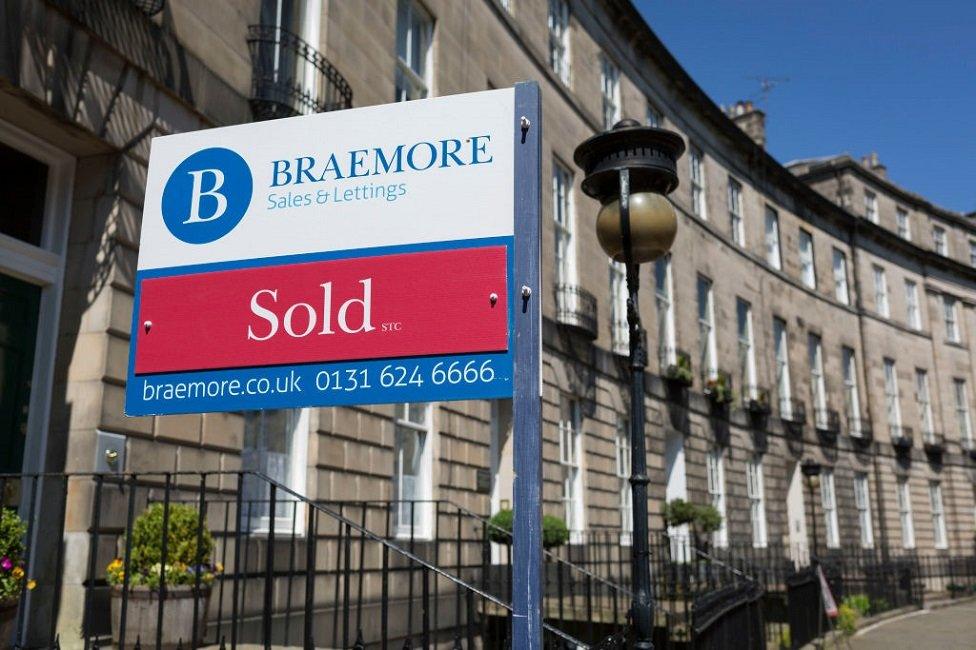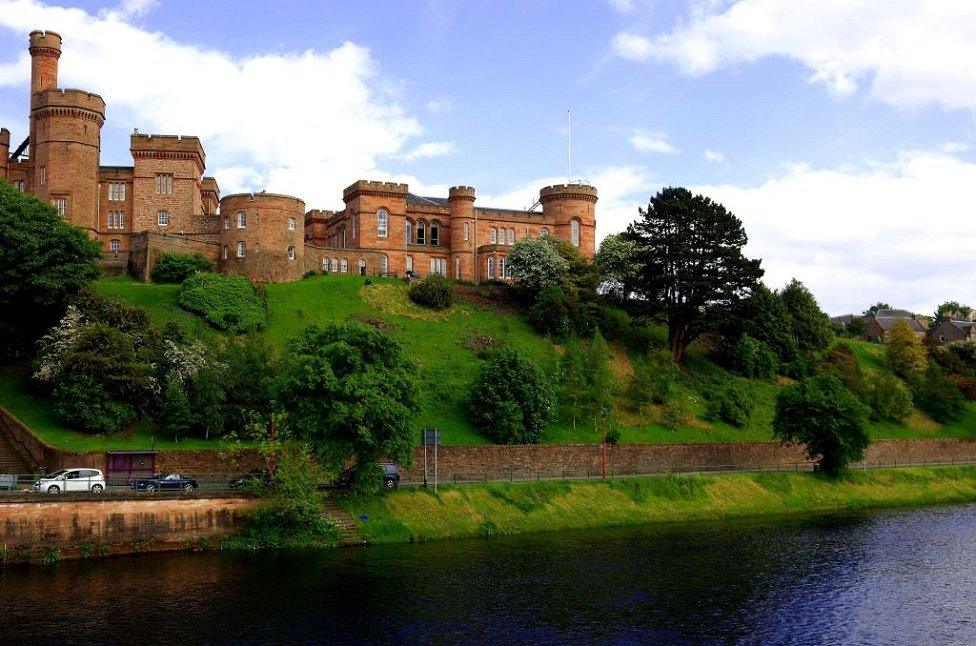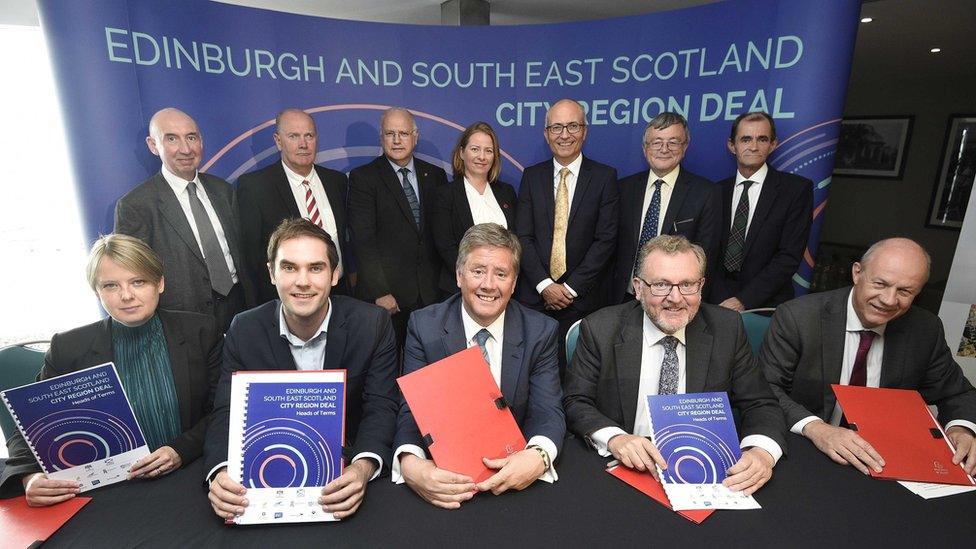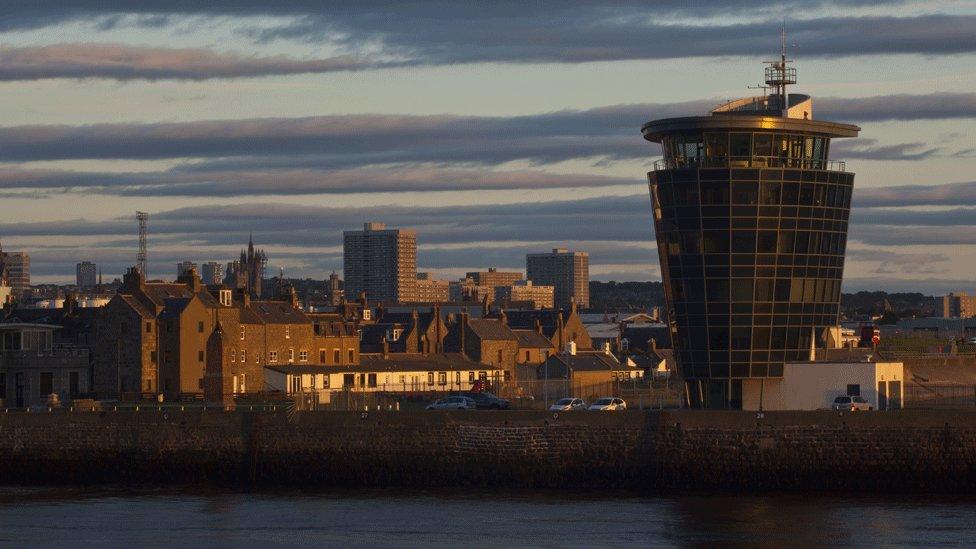No way to measure success of Scotland's city deals, says watchdogs
- Published
- comments

Improving the transport system in the Glasgow area was a priority of its £1.3bn city deal
There is no clear way to measure the success of Scotland's £5.2bn city deals, spending watchdogs have warned.
City region deals are designed to encourage economic growth and create jobs.
They have seen the UK and Scottish governments collaborate with local councils on infrastructure schemes such as new rail links.
But a report by Audit Scotland, external warns the plans lack provisions to measure performance.
It found many deals may have already missed opportunities to meet national targets due to a lack of measures to track progress.
What is a city region deal?
Glasgow signed Scotland's first city deal in 2014.
Under the terms of the 20-year deal, the UK and Scottish governments, as well as councils and other agencies committed £1.3bn to the Greater Glasgow area.
It brought together the region's eight local authorities to manage a programme targeted at improving the transport network, reducing unemployment and supporting the life sciences industry.

Affordable housing is one of the issues the Edinburgh deal hopes to tackle
Since then deals have been agreed in Aberdeen, Inverness and Highland, and Edinburgh and south east Scotland, committing a total of £5.2bn to regional economic development.
Another eight deals are in development. It means all areas of Scotland have signed or are working towards signing either a city region deal or, for regions that don't have cities, a growth deal.
Each deal is made up of a number of projects based on local circumstances and priorities. The roll-out of improved broadband and mobile coverage is one priority of the Inverness and Highland deal, while the north-east focuses on the creation of a new centre to boost innovation in the oil and gas sector.
What does the report say?
The deals have enabled economic development projects across Scotland that may not otherwise have gone ahead, according to the auditors.
They have also sparked increased collaboration between councils and their partners, like universities.
But the report by Audit Scotland for the Auditor General and the Accounts Commission says the Scottish government has not outlined how it will measure the programme's value for money.
It found that it was not clear why some projects were approved for funding over others and local communities have felt very little involvement.

A plan to turn Inverness castle into a "world-class visitor attraction" is one of the projects in the Inverness and Highland city region deal
The report added: "These factors limit transparency and the ability to hold public bodies to account for their deal spending."
Auditors recommend the Scottish government sets clear aims and objectives for the programme as a whole and devises measures to assess the impact of each deal.
Caroline Gardner, Scotland's Auditor General, said: "A significant amount of public money has been committed to city deals, but the programme's lack of aims and objectives means opportunities may already have been missed to ensure deals contribute to national outcomes.
"The Scottish government needs to show how it will measure deals' long-term success and work with councils to improve transparency around the approval process for individual projects."
What does the government say?
The Scottish government accepted the findings of the report, pledging to reflect on them in conjunction with the UK government and local authorities.
A spokesman said: "We welcome the report, which clearly highlights the positive effect that city region and growth deals are having across Scotland - strengthening relationships between councils, government, business, universities and other partners.
"Including our additional investment, the Scottish government's commitment to deals now exceeds £1.8bn and we are already taking steps to improve how we measure the long term success of our deals programme."
The Audit Scotland report highlights the significant part in the City Region Deals played by the UK government but the watchdog does not assess this role as it only has a remit to audit the performance of the Scottish government.
- Published20 July 2017

- Published21 November 2016

- Published22 March 2016

- Published20 August 2014
